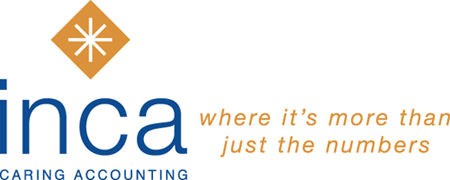If you’re self-employed – either working for yourself as a sole trader, in a partnership, or as a director of your own limited company, you will generally pay less tax than someone who is employed
HMRC considers this to be a reasonable exchange for the greater risk you are taking by not being in employment, but this said, they will do everything within their power to ensure that only those people who are genuinely in business for themselves receive applicable savings in the tax they pay.

In recent years, HMRC inspectors have been clamping down heavily on ‘intermediaries’ such as contractors, freelancers and personal service companies ‘disguising’ their employment status as self-employed.
Rather than an employee of the business they are carrying out work for – in order to reduce their tax and National Insurance payments, and to be able to take advantage of the other benefits of self-employment.
To target individuals working for a client (or clients) through an intermediary, and falsely registering as self-employed for tax purposes, HMRC introduced legislation known as IR35. As the Revenue step up their investigations to pursue individuals falling into the IR35 net, contractors and freelancers who are uncertain of their employment status are advised to seek urgent clarification to make certain they are fully compliant – before HMRC comes knocking. There can be significant consequences of ignoring IR35 legislation, with interest and penalties charged on any additional tax and National Insurance contributions due as a result of an enquiry.
As a director of your limited company or a member of your partnership, you must ensure compliance with all relevant legislation, and take responsibility for determining whether IR35 applies for each of your engagements or not.
Does IR35 apply to you?
IR35 looks at the underlying relationship between you (the worker) and the client for each contract or engagement. The facts of each engagement determine whether IR35 applies, and you need to assess what your employment status would be if there were no intermediary involved. You must assess the underlying relationship between you and your client for each of your contracts individually. Key to whether IR35 applies is whether your contract/s with your client/s allows ‘the right to substitution’ – in other words, the contract is not with you and the work can be undertaken by anyone with the appropriate skills.
IR35 will apply if all the following statements are true:
-
You personally perform services for another person or business
- Services are provided through an intermediary such as a limited company or partnership which does not meet the definition of a Management Services Company
- Services are supplied as either an office-holder of the client, or if you had provided the services directly under a contract between you and the client, your employment status would be regarded as being that of an employee or office-holder
-
The specific IR35 conditions of liability for your intermediary are met
With significant financial advantages to both the contractor and the company engaging them, it’s easy to see why some businesses and individuals can be tempted to try and bend the rules, but the scale of the penalties and fines that apply to those abusing IR35 far outweigh any benefit…
Are you concerned about your employment status?
Take our simple Q & A test.
If you’re a contractor or freelancer, and you’re uncertain of your employment status, there’s an easy way to check. Simply download our IR35 Q & A test, complete and return your answers and we’ll let you know if a) you need to take action to stay on the right side of HMRC – and advise what steps you should take, or b) you have nothing to worry about.
Download your FREE quiz: IR35 Q & A Test
Simply download our IR35 Q & A test, complete and return your answers!
Book a free accountancy review
Give us a call, drop us an email or request a call back and let’s get the ball rolling.
Phone: 01235 868888 or Email: [email protected].



